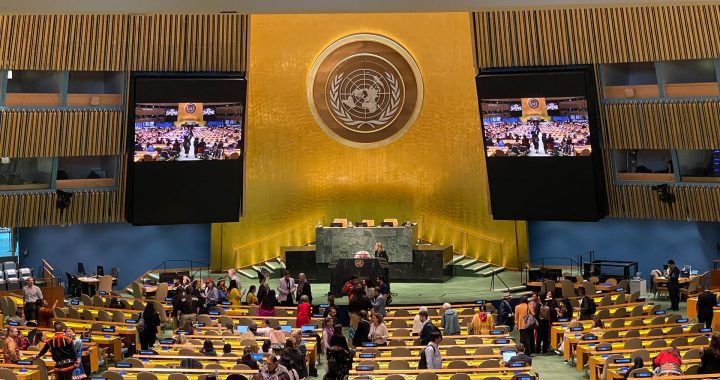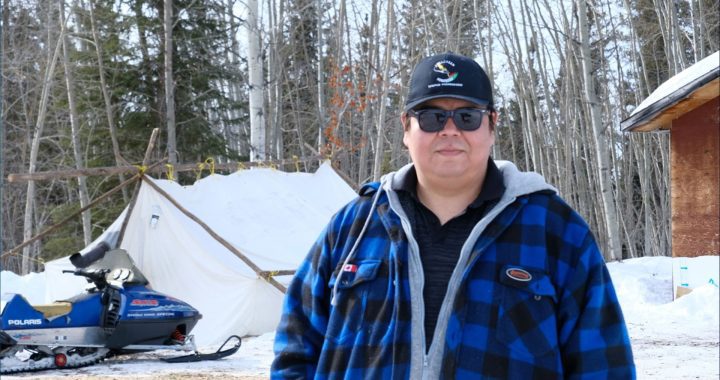The Métis Nation-Saskatchewan (MN-S) is taking the struggle for recognition of Île-à-la-Crosse residential school survivors to a global stage.
A delegation representing the organization is scheduled to speak Tuesday during a special meeting at the United Nations Permanent Forum on Indigenous Issues.
MN-S vice president Michelle LeClair said it was necessary to travel to UN headquarters in New York City to advance the case of Métis former students because they are having trouble being recognized in Canada.
Read more: Métis residential school survivors file 2nd lawsuit against Saskatchewan, Canada
The students were forced to attend Ile-á-la Crosse Residential School in northern Saskatchewan, which operated between 1860 and 1976, with about 1,500 mostly Métis children from across the region.
However, as adults they were excluded from receiving compensation under the Indian Residential Schools Settlement Agreement. So they launched a class-action lawsuit against the province of Saskatchewan and the federal government last December.
“It’s important,” LeClair said in a virtual interview with APTN News Monday.“Canada talks about how they are committed to reconciliation. Saskatchewan talks about the fact that they’re committed to reconciliation.
“As far as we’re concerned, reconciliation obviously means reconcili-action. We haven’t been acknowledged and we are one of the oldest schools, and I’ll keep repeating that.”
The proposed lawsuit says the school was operated the same as other residential schools under the Catholic church and students suffered the same cultural losses and emotional, physical and sexual abuses.
“…The Île-à-la-Crosse school survivors were forced or coerced to attend residential school, then forcibly confined and deprived of their heritage, their support networks and their way of life, forced to adopt a foreign language and culture, and punished severely for non-compliance,” the suit states.
“They were subjected to systematic child abuse, neglect, and maltreatment, and often endured psychological, physical and/or sexual abuse at the hands of teachers, administrators and other school employees.”
No statement of defence have yet been filed by Saskatchewan or Ottawa.
LeClair noted many countries admire Canada’s Truth and Reconciliation Commission and its calls to action to rectify the historical harms caused by the federal day and residential schools system. But, she said, the MN-S will tell the UN that work is incomplete without resolving the outstanding Île-à-la-Crosse claim.









